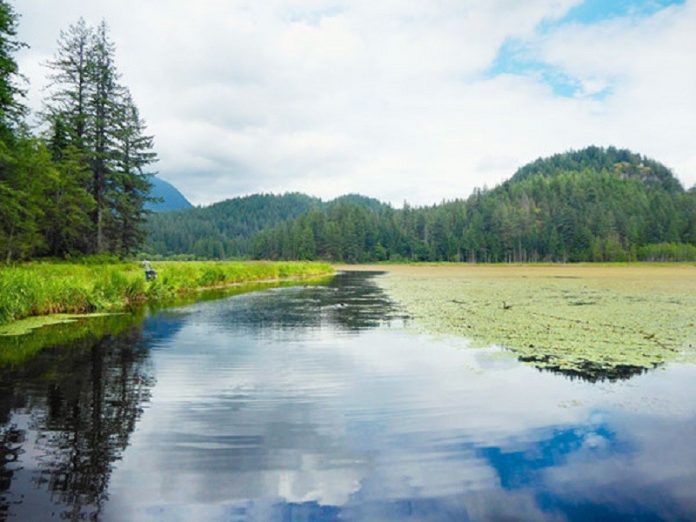METRO Vancouver says that record visitation to regional parks in 2020 underscores the importance of its efforts to significantly expand the regional park system to protect sensitive ecosystems and meet unprecedented demand for people to connect with nature close to home.
Over the past several years, regional parks attracted 11 to 12 million visits annually with an average increase of 4% per year, which is more than twice the rate of local population growth. Visitation records in 2020 are already well over 14 million visits recorded to date – an unprecedented 37% increase.
Metro Vancouver says it continues to go to great lengths to keep regional parks open and safe during the COVID-19 public health emergency. As encouraged by Provincial Health Officer Dr. Bonnie Henry, spending time in nature is an effective way to reduce stress while supporting physical and mental well-being.
“Our strategy for regional parks is to create spaces for people to get out and enjoy fresh air and nature, and also to protect important natural ecosystems as our region grows in support of conservation, livability and climate action goals,” says Regional Parks Committee Chair John McEwen.
THROUGH the Regional Parks Land Acquisition Strategy, Metro Vancouver is working toward an extensive, connected and resilient network of parks and greenways. Purchasing tracts of forests and wetlands also supports Metro Vancouver’s Climate 2050 strategy since these lands can capture and store large amounts of carbon.
In 2018, Metro Vancouver doubled its Regional Parks Land Acquisition Fund to better enable the regional district to acquire land in the face of growing development pressures. On October 30, 2020, the Metro Vancouver Board approved the 2021 budget which includes a $4 million annual tax requisition for Regional Parks to further boost this fund.
Since 2018, Metro Vancouver has added more than 200 hectares of lands for new and existing regional parks. This included the purchase of 3.8 hectares of creek side and forest habitat at Kanaka Creek Regional Park in Maple Ridge, and two park properties near the Pitt River Valley adding nearly 16 hectares to Minnekhada Regional Park and 56 hectares to the Codd Wetland Ecological Conservancy Area.
“As stewards of one quarter of the region’s land base, including over 13,000 hectares of regional parks and 65,000 hectares of sensitive protected areas, Metro Vancouver is uniquely positioned to protect greenspaces and enhance the natural ecological services that can help buffer our region from climate change,” says Sav Dhaliwal, Metro Vancouver Board Chair. “Co-investment with other orders of government and partners remains a key priority for us to adequately protect sensitive ecosystems from development pressure and meet the needs of a growing population.”
ACQUIRED in 2004, the Codd Wetland Ecological Conservancy Area contributes to the health of regional waterways, air, climate, and soil systems. The area protects critical habitat for hundreds of species of birds, fish, mammals and amphibians, some of which are no longer found in developed parts of the region. The purchase and conservation management of the site is supported by the Province of British Columbia, Metro Vancouver, the City of Pitt Meadows, The Land Conservancy of British Columbia and Ducks Unlimited. The Aquilini family has also contributed significantly to the purchase of Codd Wetland.
“Our vision for the Greater Codd area is to create a vast and stunning park complex in the rapidly-growing northeastern part of the region by expanding and connecting three separate existing protected areas: Codd Wetland Ecological Conservancy Area, Blaney Bog Regional Park Reserve and the North Alouette Regional Greenway,” says McEwen. “Thanks to our collaborations with the cities of Pitt Meadows and Maple Ridge, we are making progress on bringing together these three areas that have been fragmented by historical land use changes.”
“We pride ourselves in Pitt Meadows for our close connections with nature,” says Bill Dingwall, Mayor of the City of Pitt Meadows. “What better way to enhance those values than to collaborate with Metro Vancouver and other orders of government to bring new park lands into the fold for the health and well-being of future generations in the communities along the Pitt River Valley.”
Metro Vancouver achieved corporate carbon neutrality in 2019 largely due to the ecological restoration of Burns Bog and parkland acquisitions like Widgeon Marsh in Coquitlam and Codd Wetland in Pitt Meadows. Metro Vancouver is committed to becoming a carbon neutral region by 2050 and is accelerating actions to adapt to climate change and reduce greenhouse gas emissions.
In the past 50 years, Metro Vancouver’s Regional Parks system has grown from 3,835 hectares to over 13,632 hectares and today consists of 23 regional parks, five greenways, two ecological conservancy areas and two regional park reserves.
B-Roll Video Link – Codd Wetland Ecological Conservancy Area














